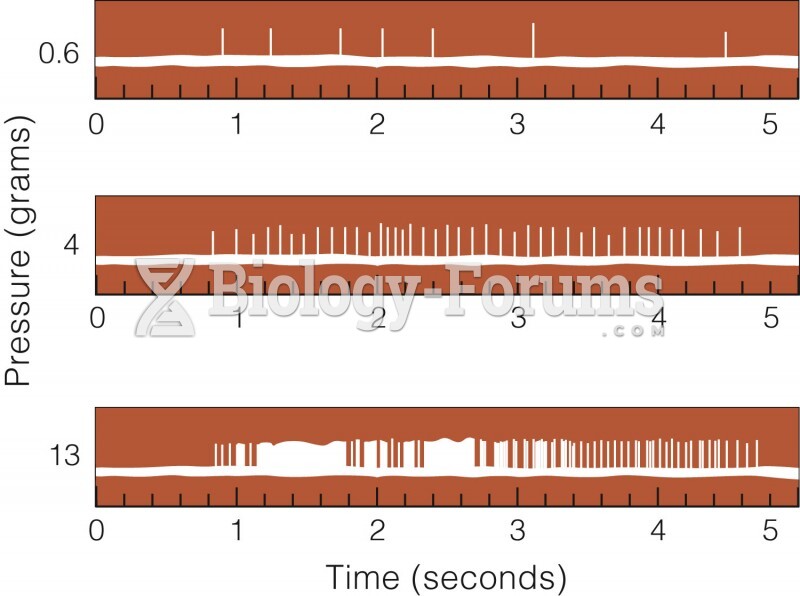Answer to Question 1
Correct Answer: 1,2,3,4
Rationale 1: Some neurotransmitters, such as glutamate, are primarily stimulatory.
Rationale 2: In some cases, the electrical impulse causes the release of an inhibitory neurotransmitter that suppresses neuronal conduction.
Rationale 3: Some neurotransmitters, such as gamma aminobutyric acid (GABA), inhibit neuronal activity.
Rationale 4: In some cases, the electrical impulse inhibits the neurotransmitter from being released.
Rationale 5: The electrical impulse at the synapse releases a neurotransmitter that then moves across a physical space to activate a receptor on the neuron on the opposite side (postsynaptic).
Global Rationale: Some neurotransmitters, such as glutamate, are primarily stimulatory. In some cases, the electrical impulse causes the release of an inhibitory neurotransmitter that suppresses neuronal conduction. Some neurotransmitters, such as gamma aminobutyric acid (GABA), inhibit neuronal activity. In some cases, the electrical impulse inhibits the neurotransmitter from being released. The electrical impulse at the synapse releases a neurotransmitter that then moves across a physical space to activate a receptor on the neuron on the opposite side (postsynaptic).
Answer to Question 2
Correct Answer: 3
Rationale 1: Clinical manifestations of hyperthyroidism are enlarged thyroid gland; palpitations; cardiac dysrhythmias; protruding eyeballs; hypertension; heat intolerance; diaphoresis; weight loss; diarrhea; smooth, soft skin; fine tremors; and irritability. Antithyroid medications or iodine preparations may be administered for this condition.
Rationale 2: Signs of diabetes mellitus include weight loss, polyuria, polydipsia, and polyphagia. Antidiabetic agents, such as the sulfonylureas and insulins, are prescribed for these symptoms.
Rationale 3: Moodiness, crying, or feelings of anxiety can be associated with disorders such as bipolar disorder, anxiety, and panic disorders. Some central nervous system medications would be prescribed for these symptoms.
Rationale 4: Angina is characterized by dyspnea, pallor, diaphoresis, palpitations and tachycardia, faintness, hypertension, tightness in the chest, or pain between the shoulder blades that can radiate to the arm, jaw, neck, or shoulder. Vascular dilators are given for treatment of angina.
Global Rationale: Moodiness, crying, or feelings of anxiety can be associated with disorders such as bipolar disorder, anxiety, and panic disorders. Some central nervous system medications would be prescribed for these symptoms. Clinical manifestations of hyperthyroidism are enlarged thyroid gland; palpitations; cardiac dysrhythmias; protruding eyeballs; hypertension; heat intolerance; diaphoresis; weight loss; diarrhea; smooth, soft skin; fine tremors; and irritability. Antithyroid medications or iodine preparations may be administered for this condition. Signs of diabetes mellitus include weight loss, polyuria, polydipsia, and polyphagia. Antidiabetic agents, such as the sulfonylureas and insulins, are prescribed for these symptoms. Angina is characterized by dyspnea, pallor, diaphoresis, palpitations and tachycardia, faintness, hypertension, tightness in the chest, or pain between the shoulder blades that can radiate to the arm, jaw, neck, or shoulder. Vascular dilators are given for treatment of angina.







